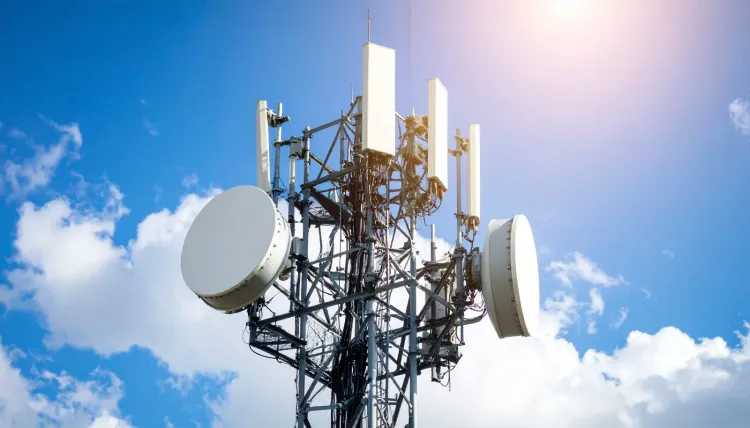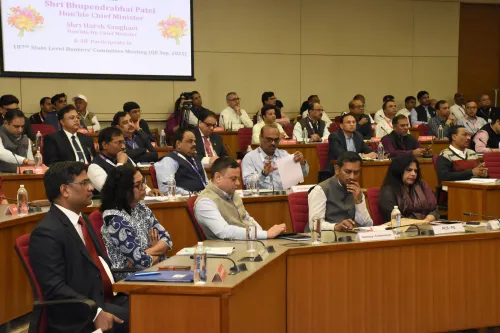Is Direct Spectrum Allocation to Enterprises Viable in India?

Synopsis
Key Takeaways
- Direct spectrum allocation to enterprises is not feasible in India.
- Existing telecom infrastructure sufficiently covers industrial areas.
- Private networks may incur hidden costs and operational challenges.
- TSPs are essential for maintaining network reliability.
- Private networks could disrupt public mobile services.
New Delhi, Aug 11 (NationPress) Direct Spectrum allocation to enterprises is deemed unfeasible in India due to multiple factors concerning the country's telecom ecosystem, national revenue, and security architecture, as stated on Monday.
"While certain industry associations have drawn comparisons with nations like the US, Finland, Germany, and the UK, where private networks are in use, such comparisons overlook the critical difference that these industries are often situated in remote or geographically isolated regions with minimal public network coverage," remarked the Cellular Operators Association of India (COAI).
COAI further stated that in India, most industrial corridors and enterprise zones are well-supported by telecom operators, leaving no notable coverage gaps.
Moreover, it is misleading to assert that establishing private networks would be cost-effective for enterprises. In reality, launching a private 5G network requires substantial upfront investment in equipment, spectrum management, security, network upkeep, and skilled personnel, according to the statement.
Unlike Telecom Service Providers (TSPs), many enterprises lack the expertise or scale to efficiently manage telecom infrastructure.
What might seem economical theoretically could turn out to be more expensive and operationally challenging in practice, the report underscored.
Additionally, with the continual advancement of both technology and the ecosystem, there will be a constant need for upgrades to the network components of private networks, which TSPs are best positioned to handle effectively.
"The future of India’s digital economy must be constructed on secure, inclusive, and accountable networks, and Indian Telecom Service Providers are prepared to offer private 5G solutions under suitable regulatory oversight,” stated Lt. Gen. Dr. S.P. Kochhar, Director General of COAI.
The statement also addressed the misconception that telcos lack the technical capacity to support private networks. With the advent of 5G, an understanding of necessary SLAs and Network Slicing ensures that telcos are better equipped to deliver these services alongside the expertise needed for sustainable operation.
It is crucial to note that radio frequencies cannot be confined geographically, resulting in RF signals from private networks potentially extending beyond intended boundaries, which can interfere with public mobile networks operated by licensed TSPs, thereby introducing risks to network reliability, service quality, and user experience on both ends.
Furthermore, one must also consider the significant financial implications for the government in the event of private networks. The national auction of Spectrum generated ₹1.5 lakh crore in 2022 alone, as highlighted in the statement.










